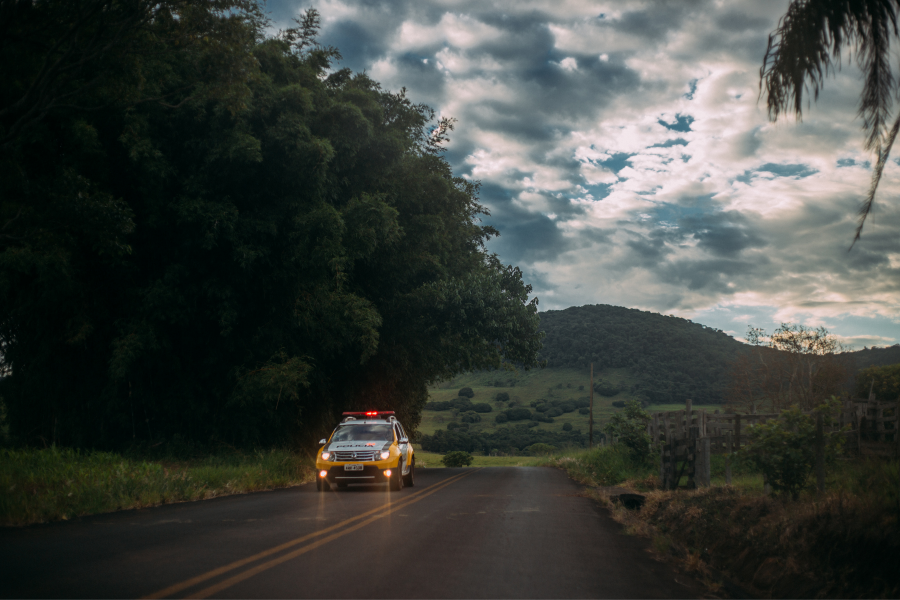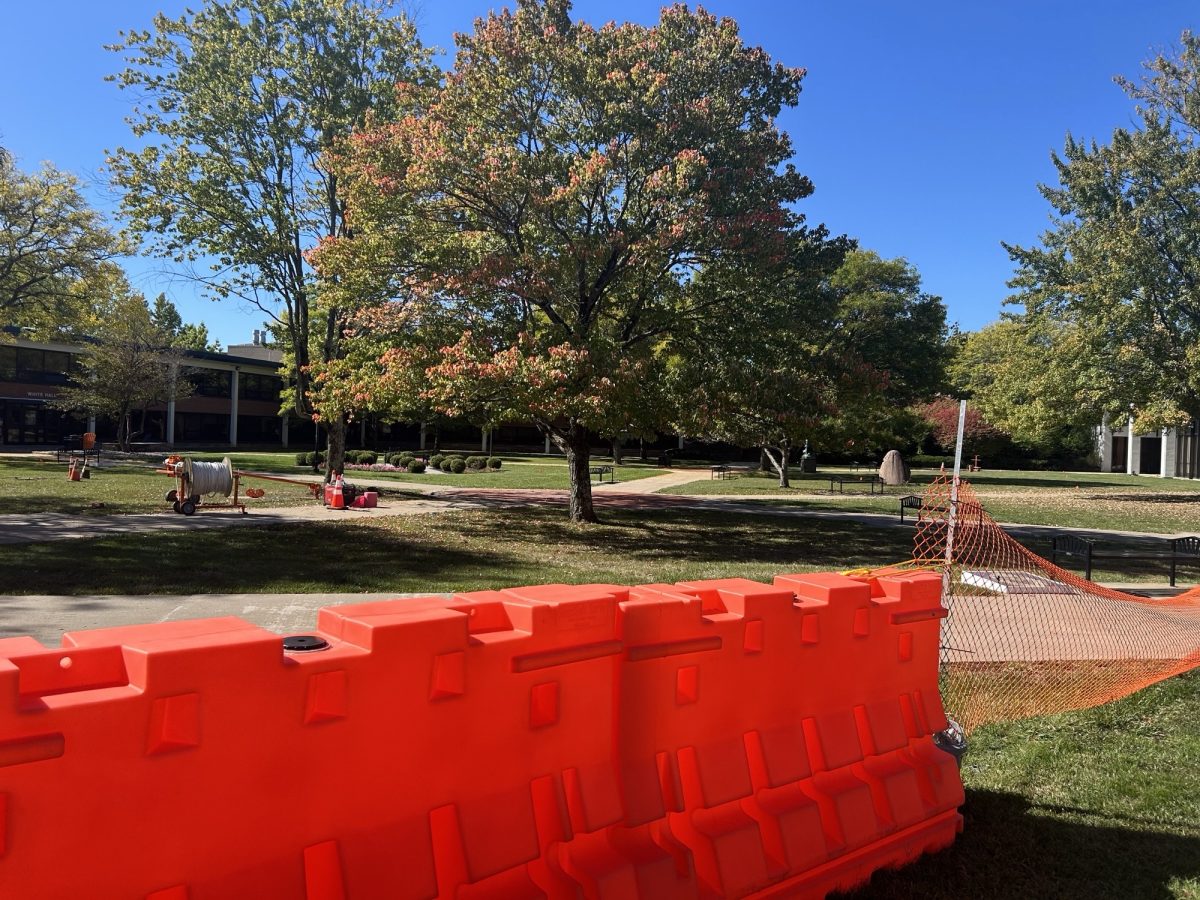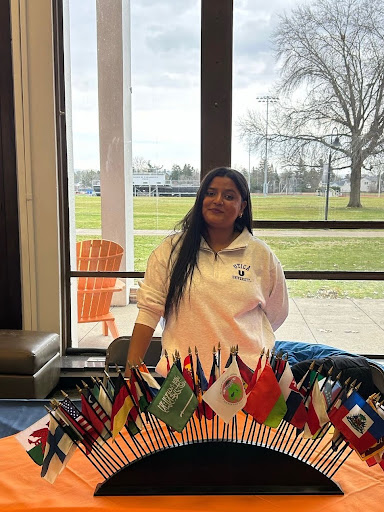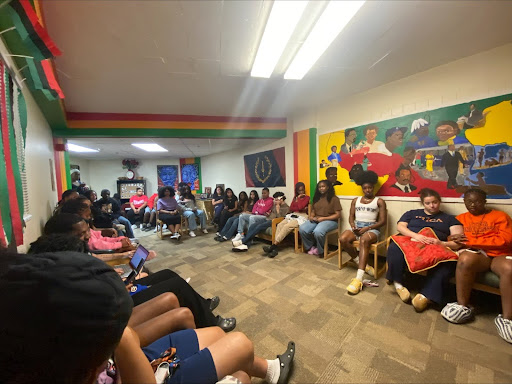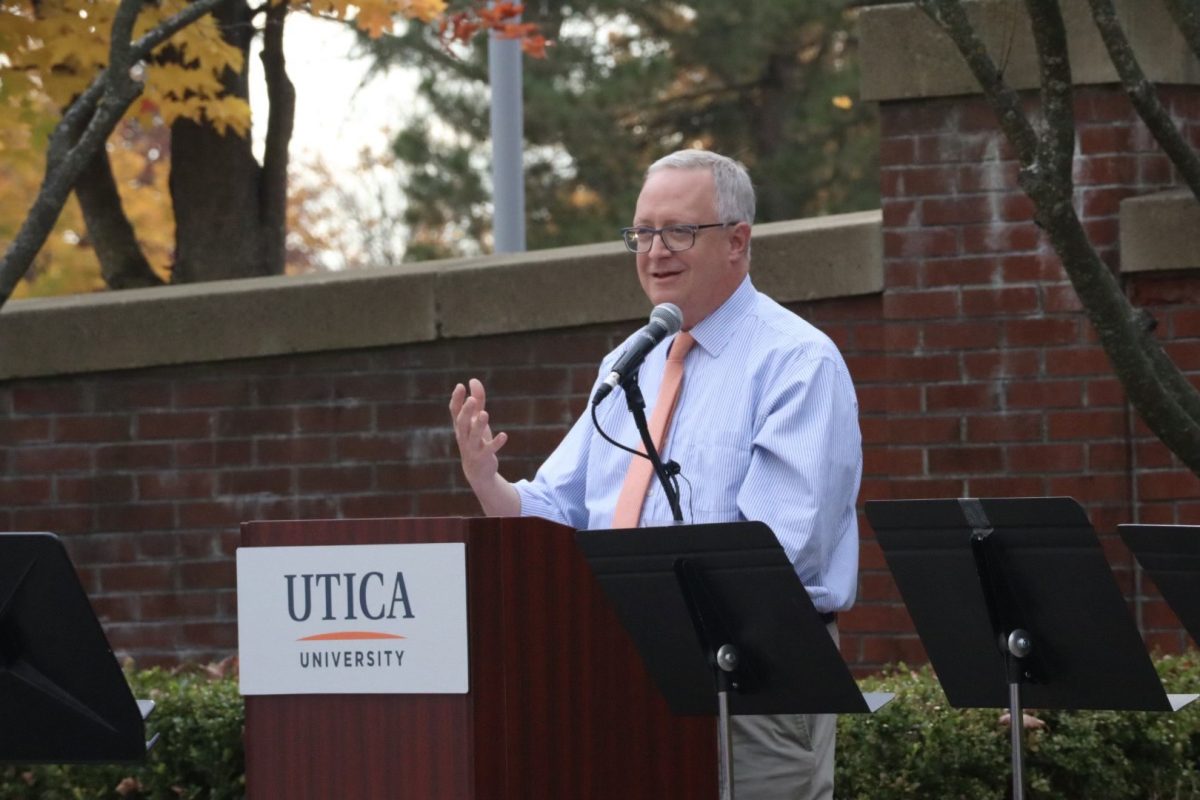Students from Utica College and the University of Portsmouth in the United Kingdom took a five-week course about police reform from April 5 – May 3, led by Associate Professor of Criminal Justice Gregory Walsh. According to some students and faculty, the course provided an invaluable experience in the virtual space.
The course covered five different topics ranging from police structure, the use of force, recruiting and hiring, the future of law enforcement and student presentations during the final week. In the student presentations, one student from the U.S. and one student from the U.K. were paired together to examine the differences and commonalities in policing in both countries.
Director of Academic Business Development Elizabeth Nassar said this course came about once interest was expressed in collaboration between faculty at Utica College and Portsmouth. From there, faculty members including Walsh and Professor Richard John at Portsmouth helped design the course’s structure and topics.
Recent Posts
- Slashed SGA budget sparks student frustration at recent meeting
- Editorial: Your campus, your voice – How to reach us when you want to speak out and how we make editorial decisions
- Op-Ed: Why Black student perspectives matter in campus reporting
- Conservative activist Charlie Kirk’s death shocks Utica University students
- Op-Ed: Utica student looks to start new multi-faith discussion group on campus
Another valuable element to the course, according to Nassar, were guest speakers. With each topic, a guest speaker would be brought into the class to talk about their experiences to help spark conversation among students.
“I sat in the conversation led by the Director of Campus Safety Musco Millner,” Nassar said. “He was a former director of recruitment for many police agencies across New York State, and he gave this breathtaking presentation on diversity indicators and how they’ve changed recruitment within the police in the state.”
The course brought up conversations about the use of guns in the police, which engaged students in the differences between England and the United States in how each country uses weapons. According to Walsh, although there are similarities in mannerisms between both countries, only around one out of 25 officers in the United Kingdom are authorized to carry a firearm in the country, whereas the carry of a firearm in the United States for each police officer is a commonality.
Students didn’t shy away from the subject matter of each lecture, either, no matter what the conversations were about.
“I didn’t have a single class where I didn’t talk about something sensitive,” Walsh said. “I started each class by bringing up something that was going on in the news. The students handled each topic in a constructive way. I never had to step in to stop them. They were great conversations.”

Kim Morton, a criminal justice major in her junior year, is planning to attend law school after graduation. She found something valuable in each class and noted that the diversity with each perspective is something Utica College should strive for in the academic setting.
“This course was amazing,” Morton said. “Even though it wasn’t a requirement for my major, the topics in each lecture have really helped broaden my understanding and perspective on these issues. I loved working with students from the U.K., especially my partner for the student presentations. She was really motivated about her work, and it became a real joy to tackle difficult topics from both of our perspectives.”
Her partner Tegan Nicks is a student in her third year at the University of Portsmouth. Nicks is writing her dissertation on many of the topics covered in the course. The course left her more open-minded about policing while leaving her fascinated with lectures in both training and the use of weapons.
“It was interesting to hear the opinions of each student about the variety of topics covered in the course,” Nicks said. “There was a lecture that talked about the training of police officers in the United States, where they placed officers in a sort of simulation in this city where they would be on duty. They would then have to react to certain scenarios. I wondered if any police force in the U.K. offered something like that. The use of weapons is a topic where I felt everybody was very engaged. Students in the U.S. might’ve thought it to be weird that officers in the U.K. don’t carry a gun, but it was really nice to hear their perspectives on that topic.”
Nicks indicated that she would have enjoyed talking more about England’s high number of violent crimes involving knives. In the year ending in March 2020, a study from the House of Commons Library concluded that there were around 46,000 incidents involving knives or sharp instruments in both England and Wales. This number was the highest both countries had in nine years.
“Lots of people in this country carry knives,” Nicks said. “It worries me because my brother tells me stories about his mates and how they carry knives with them at all times. Although people carry a knife for protection, it ultimately makes them a target. There were two stabbings not too far away from where I live recently. One of them involved someone who was only 19 years old.”
Nicks, like many students in the course, appreciated the diversity of the class, which helped enhance her learning experience.
Utica College recently held a Town Hall at the end of April, which revealed that the College intends to expand its presence by both geography and modality within the next five years. Walsh believes that offering and developing courses such as this in the virtual space can help make that goal a reality.
“I intend to offer this course once a year,” he said. “I’d love to develop this into a study abroad opportunity one day. It’s a course I believe proved to work over Zoom, and I hope opportunities that involve an array of different students only enhance in the future. It should be the baseline of what our academics intend to achieve.”




































































































































